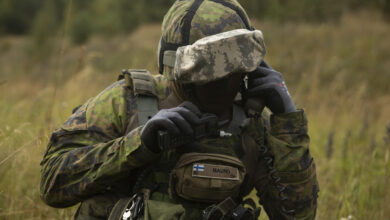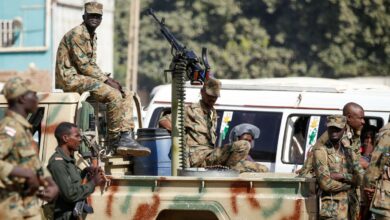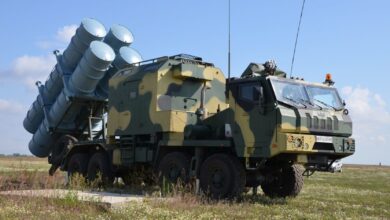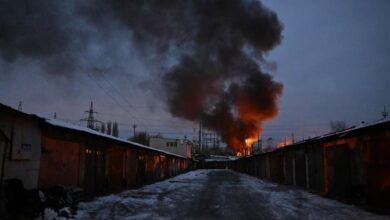Azerbaijan, Armenia Hold Brussels Talks, Russia Proposes Moscow Summit
Azerbaijan and Armenia held a fresh round of EU-mediated peace talks Saturday, while Russia offered a summit in Moscow in an effort to reassert a lead role in the normalization process.
Azerbaijani President Ilham Aliyev and Armenian Prime Minister Nikol Pashinyan met in Brussels for talks aimed at resolving their decades-long conflict for the control of Armenian-populated Karabakh, the foreign ministry in Baku said in a statement.
European Council President Charles Michel was mediating the discussions, which come amid renewed tensions after Azerbaijan closed temporarily the Lachin corridor, the sole land link between Karabakh and Armenia.
Baku and Yerevan have been seeking to negotiate a peace agreement with the help of the European Union and United States, whose diplomatic engagement in the Caucasus has irked traditional regional power broker Russia.
Moscow on Saturday offered to host the two countries’ foreign ministers and suggested the future peace treaty could be signed in Moscow.
Russia is ready “to organise a trilateral meeting of the foreign ministers in Moscow in the near future,” the country’s foreign ministry said in a statement.
It offered to hold later a “Russian-Azerbaijani-Armenian summit in Moscow to sign the relevant (peace) treaty.”
Adding to the recent standoff with Yerevan, Azerbaijan’s defense ministry said Armenian separatist forces in Karabakh “use radio interference against GPS navigation systems of local and foreign airlines’ passenger aircraft flying through our country’s airspace.”
The alleged interference impacted two Azerbaijan Airlines aircraft on Thursday, the ministry said.
“Such incidents pose a serious threat to aviation safety,” according to the statement.
Karabakh’s rebel authorities denied the claims, calling them an “absolute lie.”
Uneasy Peace Talks
On Friday, some 6,000 people rallied in Karabakh to demand the reopening of the Lachin corridor.
#Azerbaijan is starving the #Armenians of Nagorno Karabakh. Tens of thousands of people gathered today in Stepanakert's Square, demanding an end to the 7-month blockade of #NagornoKarabakh.#Armenia #Yerevan #NagornoKarabakh #Karabakh #Artsakh #ArtsakhBlockade #LachinCorridor… pic.twitter.com/Z94PZWTIMo
— Robert Ananyan (@robananyan) July 14, 2023
Local separatists, warning of a humanitarian crisis, urged Moscow to ensure free movement through the road.
Azerbaijan later allowed the Red Cross to resume medical evacuations from Karabakh to Armenia.
Karabakh has been at the center of a decades-long territorial dispute between the two countries, which have fought two wars over the mountainous territory, mainly populated by Armenians.
During previous rounds of Western-mediated talks, Baku and Yerevan have made some progress towards preparing the text of a peace agreement, but its signature remains a distant prospect.
Yerevan agreed to recognize Karabakh as part of Azerbaijan, but demanded international mechanisms for protecting the rights and security of the region’s ethnic-Armenian population.
Baku insists such guarantees must be provided at the national level, rejecting any international format.
In autumn 2020, Russia sponsored a ceasefire agreement that ended six weeks of fighting between Armenian and Azerbaijani forces for control of Karabakh.
The deal saw Armenia cede swathes of territories it had controlled for decades, while Russia deployed peacekeepers who are manning the five-kilometer-wide Lachin Corridor to ensure free passage between Armenia and Karabakh.
Armenia, which has relied on Russia for military and economic support since the collapse of the Soviet Union in 1991, has accused Moscow — which is bogged down in its war against Ukraine — of failing to fulfill its peacekeeping role in Karabakh.
When the Soviet Union collapsed in 1991, ethnic Armenian separatists in Karabakh broke away from Azerbaijan. The ensuing conflict claimed some 30,000 lives.












